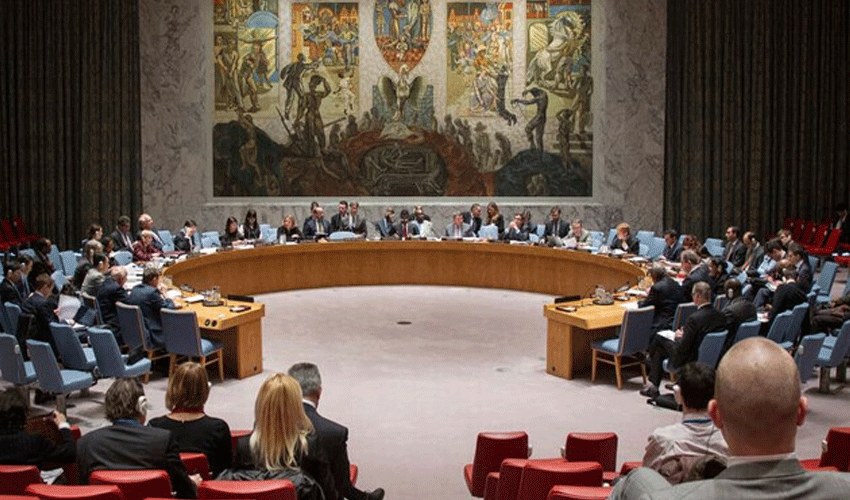Defence Minister Khawaja Asif has said that a military incursion by India was imminent in the aftermath of a deadly attack on tourists in Pahalgam region of India-held Kashmir last week, as tensions rise between the two nuclear-armed nations.
The attack killed 26 people and triggered outrage in India, along with calls for action against Pakistan.
"We have reinforced our forces because it is something which is imminent now. So in that situation some strategic decisions have to be taken, so those decisions have been taken," Khawaja Muhammad Asif told Reuters in an interview at his office in Islamabad.
Asif said India's rhetoric was ramping up and that Pakistan's military had briefed the government on the possibility of an Indian attack. He did not go into further details on his reasons for thinking an incursion was imminent.
Also Read: Pakistan to welcome foreign mediation to de-escalate Indo-Pak tensions: Khawaja Asif
After the attack in held-Kashmir, India identified two suspects as Pakistani. Islamabad has denied any role and called for a neutral investigation.
Furthermore, on Samaa TV show 'Red Line with Talat', Asif said: "The clouds of war are gathering over the region, with tensions between Pakistan and India reaching alarming levels. A war could potentially break out between the two countries within the next two to four days."
He stated that if hostilities erupt, Pakistan would respond with full force. Asif told Reuters that Pakistan was on high alert and that it would only use its arsenal of nuclear weapons if "there is a direct threat to our existence".
Earlier, in an exclusive conversation with Samaa TV, Khawaja Asif had strongly rejected India's allegations against Pakistan regarding the Pahalgam attack, calling it a “fabricated drama” aimed at restoring Indian Prime Minister Narendra Modi’s political reputation.
Also Read: 24 tourists perish in Pahalgam after midday shooting
In the interview from Sialkot, Khawaja Asif said that many voices within India itself are questioning Modi's intentions, suggesting that the incident was orchestrated for political gain. He urged the formation of an international commission, preferably under the United Nations or involving regional powers, as suggested by the prime minister, to independently investigate the matter.
"The Pahalgam incident is a complete lie, just like nothing substantial came out of Pulwama," Asif stated, adding that Pakistan has full trust in international forums and is ready for a transparent inquiry.
In the aftermath of the Pahalgam attack, India officially suspended the historic Indus Waters Treaty with Pakistan, marking a significant shift in South Asia’s geopolitical landscape.
The announcement came from the Indian Ministry of External Affairs following a meeting chaired by Indian Prime Minister Narendra Modi after a deadly attack that claimed the lives of 25 Indian citizens and one Nepali national.
Pakistanis ordered to leave India within 48 hours
India has also ordered all Pakistani citizens currently in the country to leave within 48 hours, while simultaneously announcing the closure of the Attari check post, a key border crossing between the two nations. The Pakistani High Commission staff has also been ordered to return home within seven days.
“The perpetrators of the attack will be brought to justice, and those sponsoring them will be held accountable,” said Vikram Misri, a senior Indian official, during a press briefing.
Visa restrictions tightened
In addition to expelling Pakistani nationals, India has suspended all visa services for Pakistani citizens, including those issued under SAARC (South Asian Association for Regional Cooperation).
Also Read: India suspends Indus Waters Treaty, expels Pakistanis, closes Attari post
Visas for Pakistani diplomats and defense attachés have also been limited or cancelled, with several officials being asked to leave the country immediately. The Pakistani attaché has also been declared persona non grata, the Indian foreign ministry announced.
“Pakistani nationals will no longer be allowed to travel in India,” Vikram Misri added. “This attack was linked to cross-border linkages and is seen as an attempt to destabilize the region after successful elections in Jammu & Kashmir.”
Indus Waters Treaty suspended
The suspension of the Indus Waters Treaty, a 1960 agreement brokered by the World Bank to manage water sharing between the two countries, is being viewed as one of the most serious retaliatory moves yet. The treaty had survived multiple wars and decades of hostilities, making its suspension a grave signal of worsening relations.
In return, Pakistan decided to exercise its right to suspend all bilateral agreements with India following the alleged false flag operation in Pahalgam in India-held Kashmir as well as India's unilateral announcement to suspend the Indus Waters Treaty.
The decisions were made during an emergency session of the National Security Committee (NSC), chaired by Prime Minister Shehbaz Sharif and attended by the services chiefs and the Chairman of the Joint Chiefs of Staff Committee.
According to an official statement, the NSC reviewed the situation arising after India's false flag operation in Pahalgam and expressed deep concern over the deteriorating regional situation after the attack. The committee condemned the loss of innocent lives, including tourists, and accused India of exploiting the tragedy for political purposes.
Closure of Wagah Border, suspension of diplomatic ties
The committee recommended the immediate closure of the Wagah border. Although it will remain open for entry and exit until April 30, all Indian citizens, excluding Sikh pilgrims, have been ordered to leave Pakistan within 48 hours. Additionally, Pakistan has suspended visas issued to Indian nationals under the South Asian Association for Regional Cooperation (SAARC).
Also Read: Pakistan shuts Wagah border, suspends trade and agreements, expels Indians
Pakistan has also reduced the number of staff members at the Indian High Commission staff in Islamabad to 30.
Defense, naval, and air advisors posted at the Indian High Commission in Islamabad were declared "persona non grata" and ordered to leave the country. Pakistan has also closed its airspace to all Indian aircraft and suspended all trade activities with India, including those routed through third-party countries.
Rejection of Indus Waters Treaty suspension
Pakistan strongly rejected India’s suspension of the 1960 Indus Waters Treaty, terming it a binding international agreement brokered by the World Bank. “There is no clause in the treaty that allows unilateral suspension,” the statement read.
The NSC emphasized that any attempt to block Pakistan’s water share would be considered an act of war. It declared water as a vital national interest and vowed to raise the issue at global platforms, reiterating Pakistan’s resolve to defend its rights under international law.
Simla Accord suspended
In a rare and bold move, the National Security Committee announced that Pakistan could exercise its right to suspend all bilateral agreements with India, including the Simla Agreement. The agreement has served as the diplomatic framework for peace and conflict resolution between the two nuclear neighbours since 1972.
Reaffirming Two-Nation Theory
In its concluding remarks, the NSC said India’s recent actions had validated the Two-Nation Theory -- the ideological basis for the creation of Pakistan. “India's aggression and discriminatory policies have once again proven the fundamental need for a separate homeland for Muslims,” the committee declared.
The National Security Committee (NSC) issued a strong response to India’s recent provocative statements, calling them baseless and irresponsible.


























